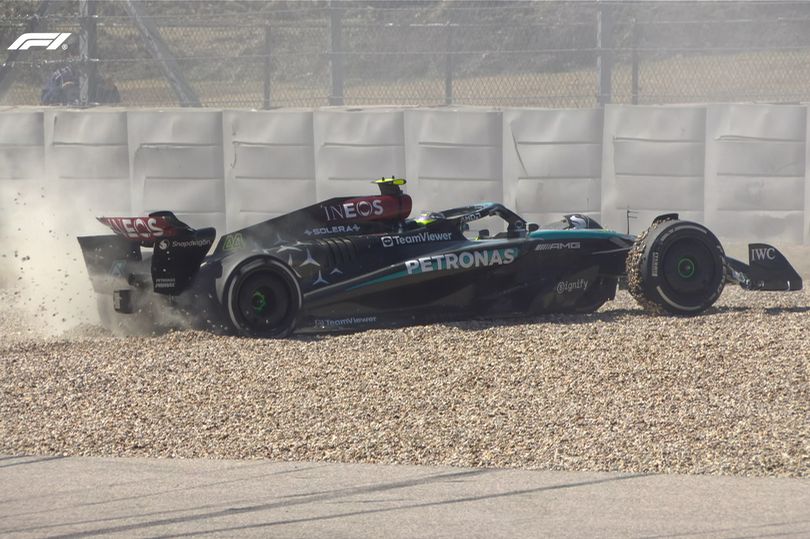Breaking News: Controversy Surrounds Norris’s Penalty at the US GP…. read more

Controversy Surrounds Norris’s Penalty at the US GP…. read more
The recent Formula 1 United States Grand Prix was dominated bya single contentious issue: the late-race incident involving Lando Norris and Max Verstappen. The race, held in Austin, became a battleground for the title contenders, culminating in Norris receiving a penalty for overtaking Verstappen while both drivers were off the track.
The situation unfolded dramatically as the race approached its conclusion. Norris attempted to overtake Verstappen for third place, but the maneuver resulted in both cars leaving the track. The stewards quickly intervened, deeming Norris’s action worthy of a penalty. This decision has sparked significant debate within the F1 community, raising questions about the appropriateness of the penalty and the implications for both drivers and their teams.
McLaren, Norris’s team, expressed strong dissatisfaction with the stewards’ ruling, arguing that the intervention was unwarranted. They contended that Norris’s maneuver was part of the high-stakes nature of racing, where split-second decisions often lead to close calls. The team’s position highlights a growing sentiment among fans and analysts who believe that such penalties detract from the spirit of competition, particularly in a sport where aggressive racing is celebrated.
Conversely, critics argue that the penalty was justified. They assert that drivers must adhere to certain standards of conduct, particularly when it comes to track limits and safety. Norris’s decision to overtake off-track is seen by some as a clear breach of these principles. The stewards’ role is to maintain order and ensure fair play, and by penalizing Norris, they may have reinforced the importance of these regulations.
In addition to the incident between Norris and Verstappen, attention was also drawn to Verstappen’s aggressive start to the race. His early lunge was a crucial moment that set the tone for the competition. Some observers noted that Verstappen’s approach could have warranted scrutiny as well, suggesting that the stewards’ focus on Norris alone was inconsistent.
The contrasting viewpoints on this situation reflect broader debates within Formula 1 regarding the enforcement of rules and the balance between maintaining competitive integrity and allowing drivers the freedom to race. Many fans appreciate the excitement that comes from close racing and overtaking maneuvers, while others believe that adherence to the rules is paramount for the sport’s credibility.
As discussions continue, it’s clear that this incident has significant implications for both Norris and McLaren, as well as for Verstappen and Red Bull Racing. The penalty not only affected the outcome of the race but also has the potential to influence future strategies and decision-making for all teams involved.
Ultimately, the controversy surrounding Norris’s penalty raises essential questions about the nature of racing in Formula 1. Should the sport embrace a more lenient approach to on-track battles, or should it enforce stricter adherence to the rules? The answer may vary depending on individual perspectives, but one thing is certain: incidents like this will continue to fuel passionate debates among fans, teams, and officials alike.
As the F1 season progresses, it will be interesting to see how this incident shapes future races and the strategies employed by teams as they navigate the complex landscape of racing regulations. With the championship title on the line, every decision and its repercussions will be closely scrutinized, making each race a critical battleground for both drivers and their teams.






